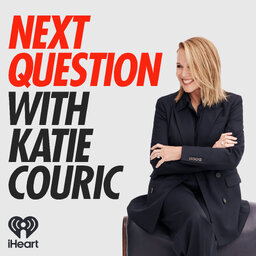A Conversation With Brooke Shields About Living a Public Life
On a recent episode of Brooke Shields’ podcast Now What?, Katie and Brooke took a walk down memory lane and came back with some thoughtful insights to kick off 2024.
Brooke and Katie share a long history with the limelight, and they reflect in this intimate conversation on the trials and tribulations of going through life’s ups and downs in the public eye. That’s come with its challenges, but also the privilege of a long relationship with their audiences. Both blazed trails and opened doors in their respective industries. But some of the most enduring work has been with causes close to their hearts.
We all have so much to give to the world; allow this conversation to inspire you this January to find your passion, and share it.
 Next Question with Katie Couric
Next Question with Katie Couric


